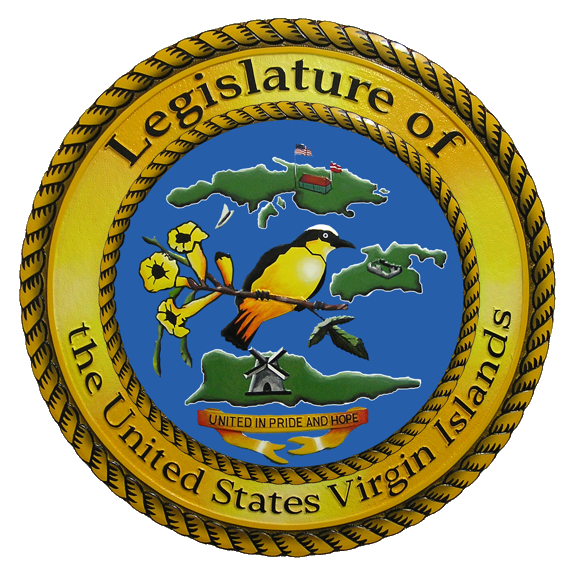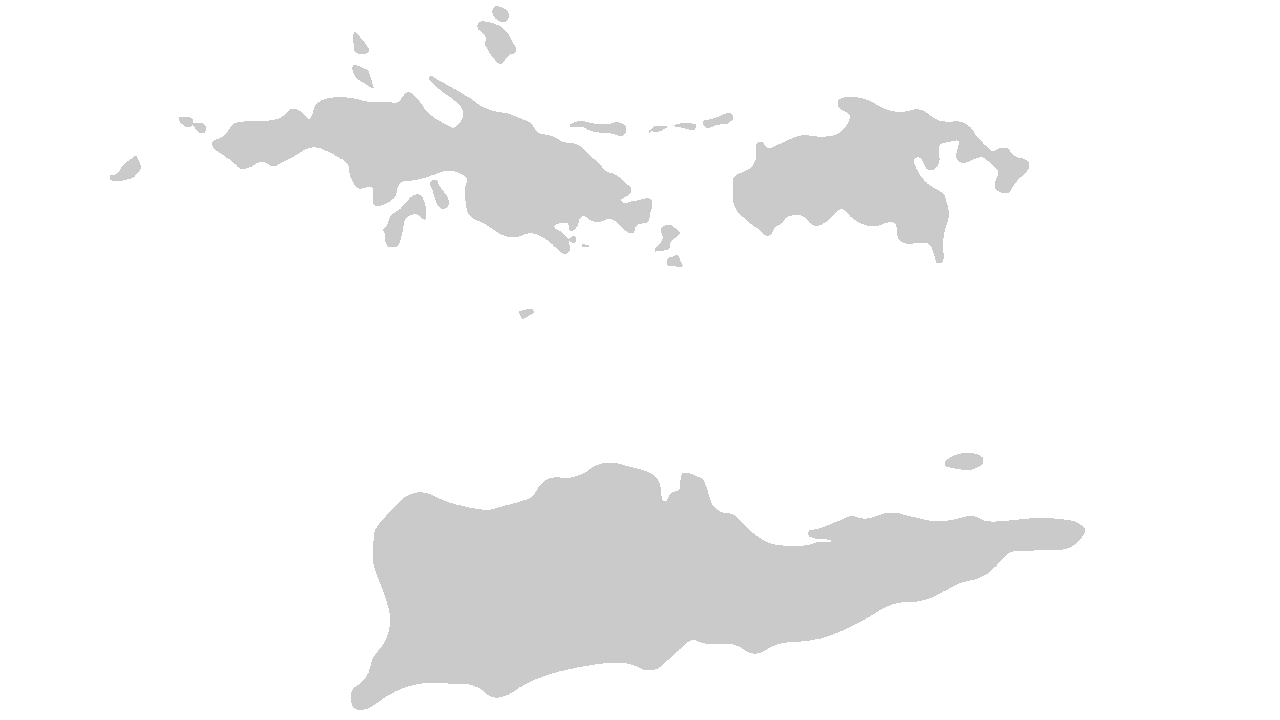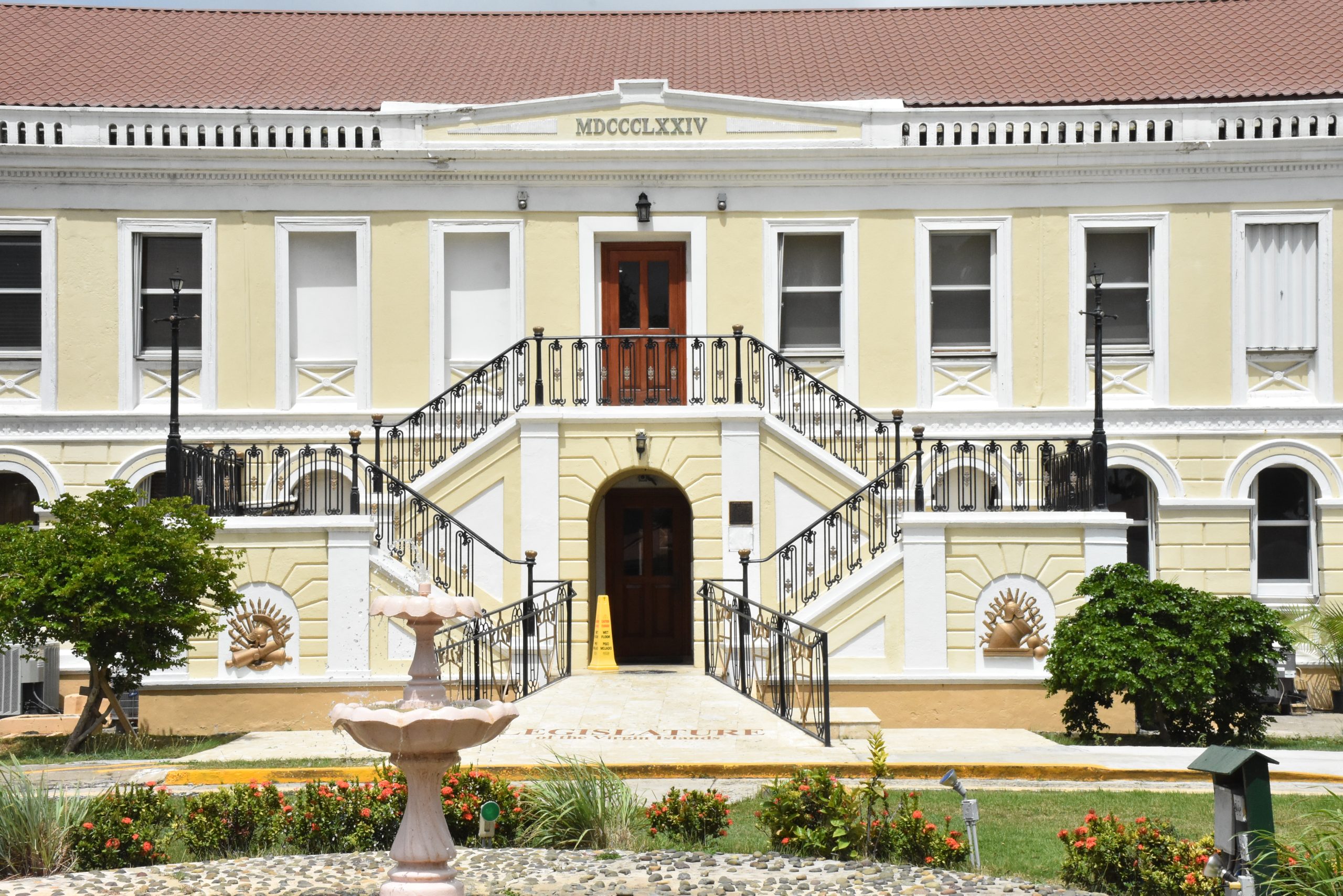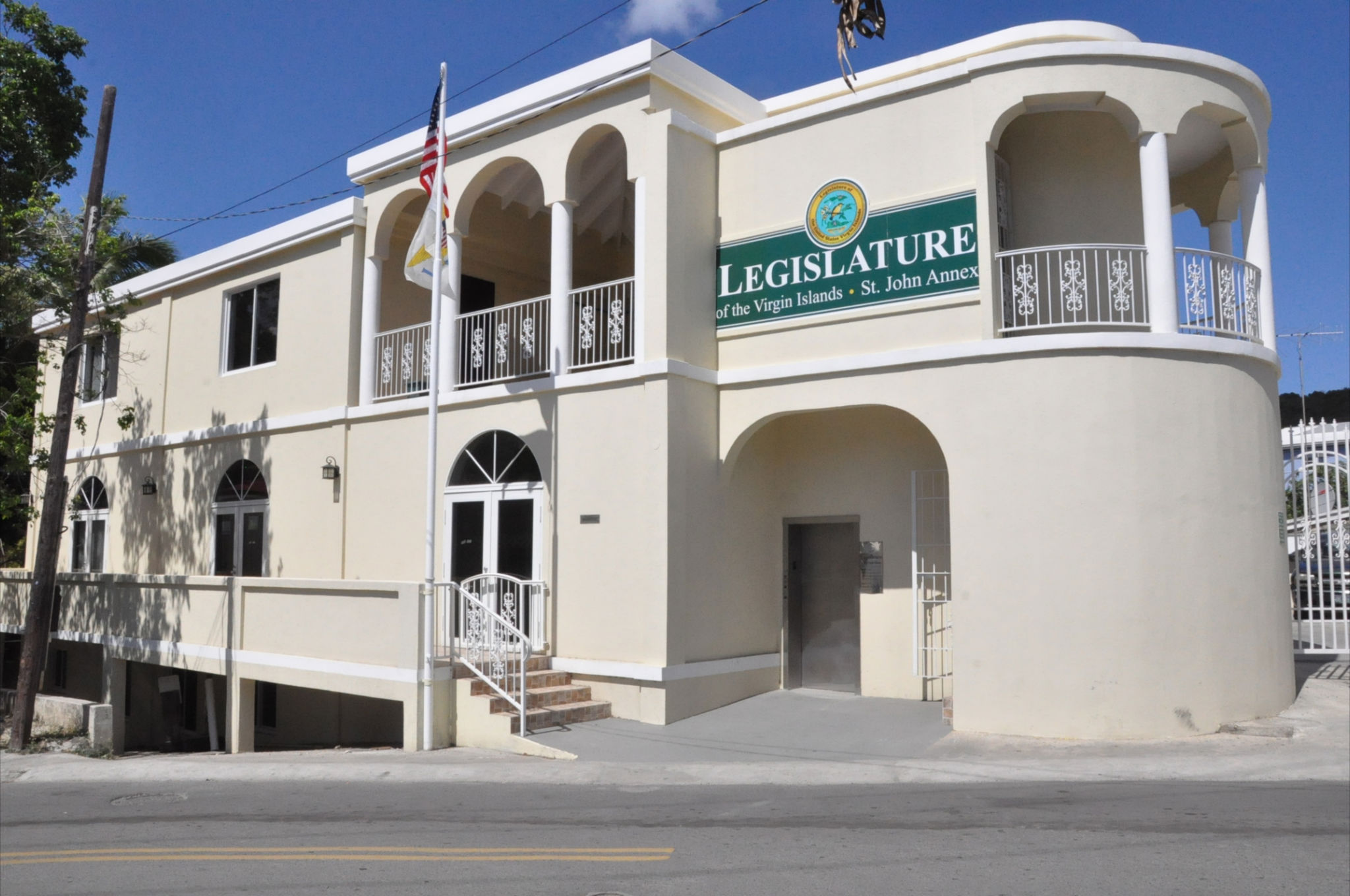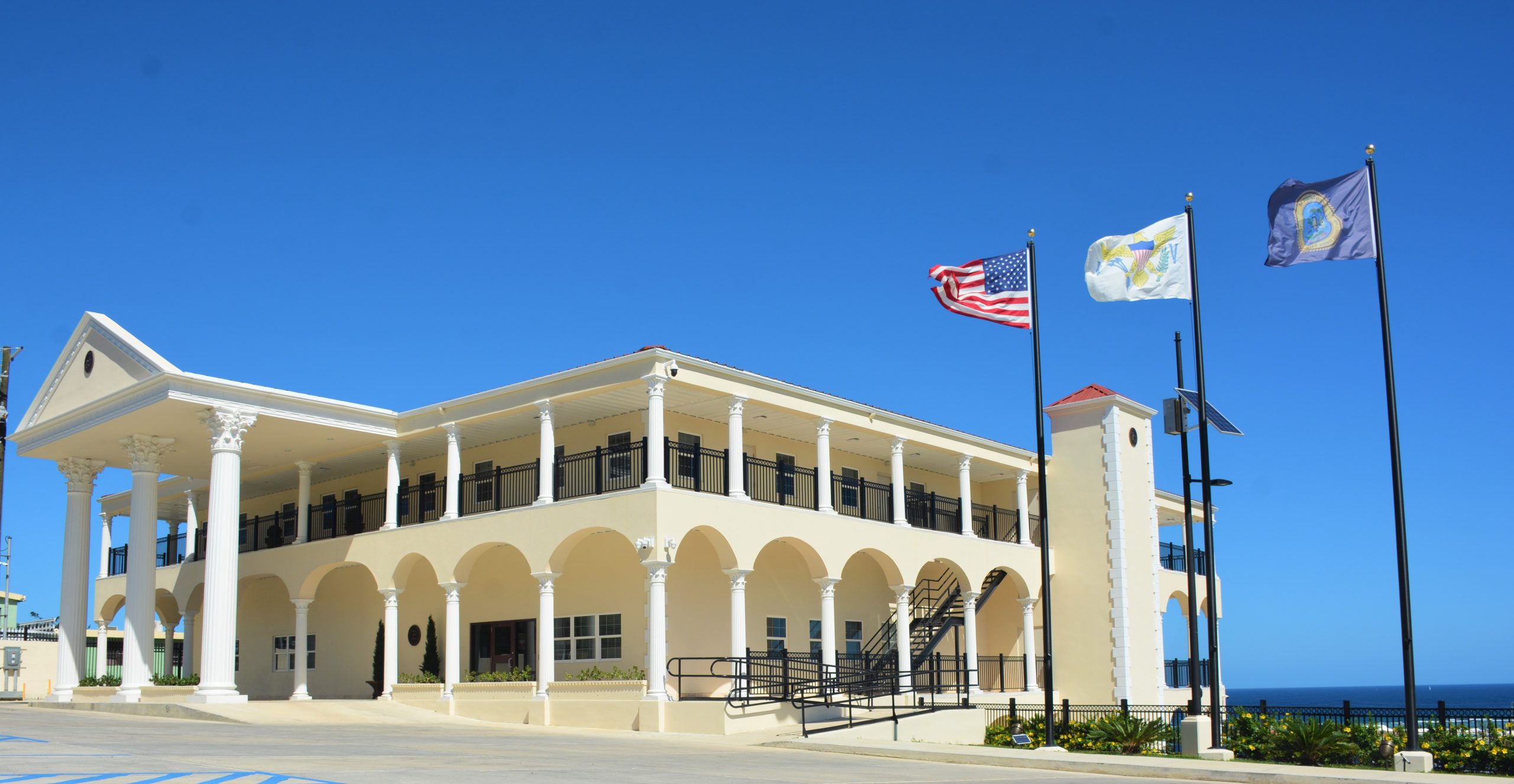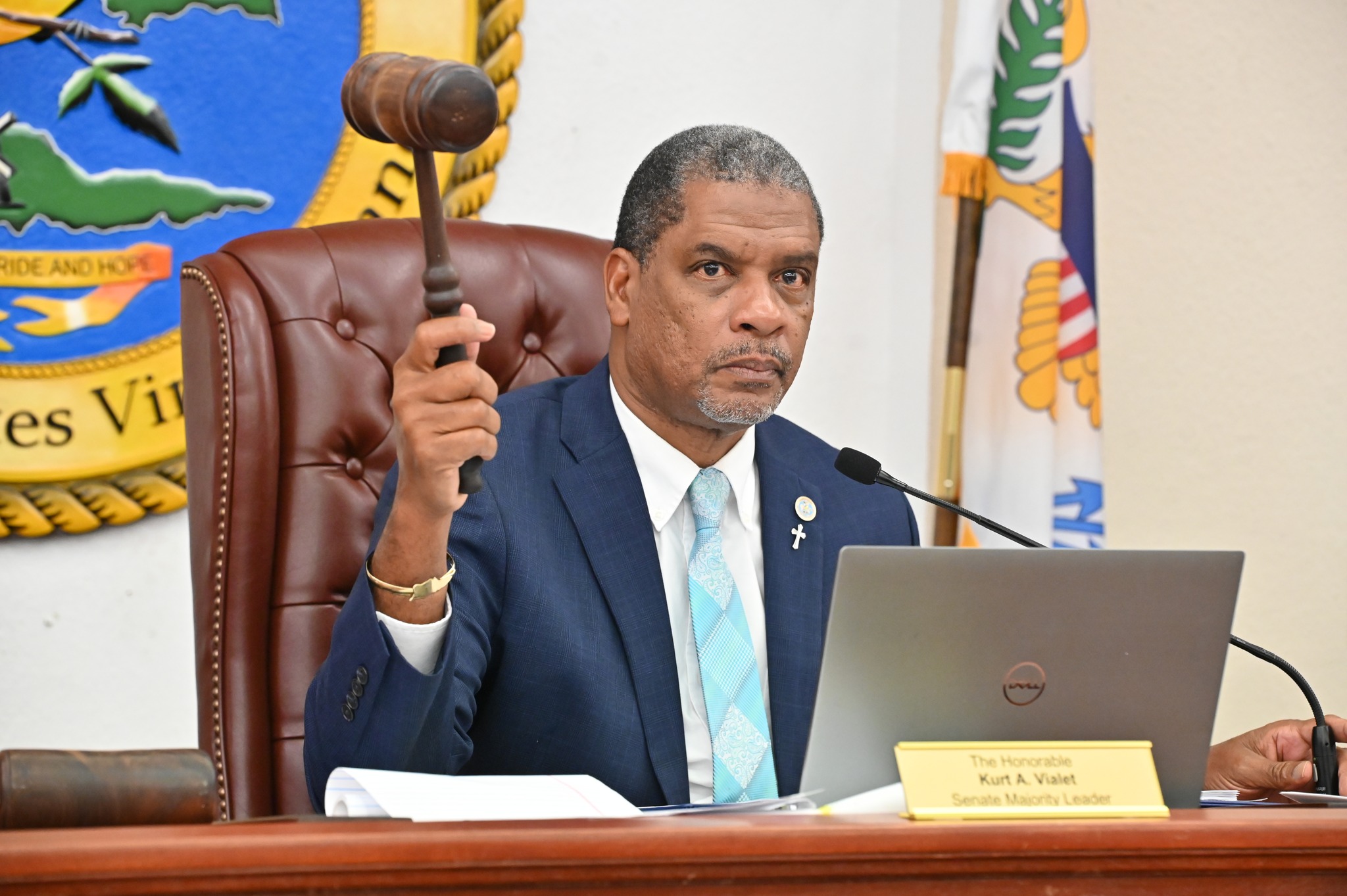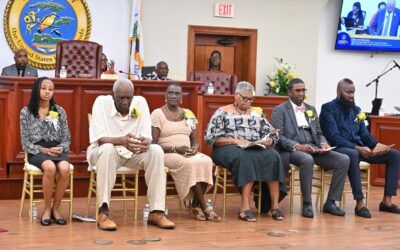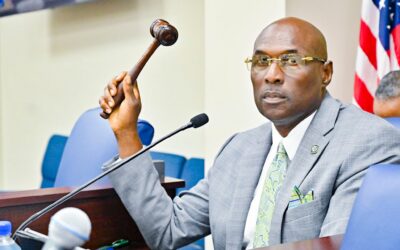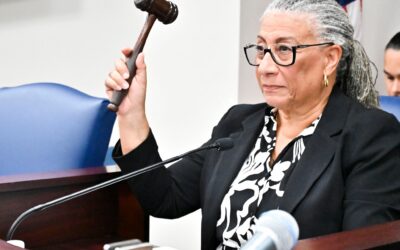ST. THOMAS, VI — The Committee on Education and Workforce Development, chaired by Senator Kurt Vialet met in the Earle B. Ottley Legislative Hall. Lawmakers received testimony concerning the status of special education programs in the territory’s schools, to include, but not limited to local and federal funding and participating service providers.
Dr. Dionne Wells-Hedrington, Commissioner of the Virgin Islands Department ofEducation provided an overview of special education services provided by the Virgin Islands Department of Education. Wells-Hedrington stated that the department has faced challenges with delivering high quality special education services. This has included limited funding, shortages of specialized staff, including school psychologists, speech language pathologists and special education teachers. Additionally, infrastructure issues have plagued the department. Wells-Hedrington has said that there have been efforts to improve the system. Through partnerships with federal agencies such as the Early Childhood Technical Assistance Center, the Center for IDEA Fiscal Reporting, The National Technical Assistance Center on Transition, IDEA Data Center, and the Consortium for Appropriate Dispute Resolution in Special Education. There has been a recent focus on inclusive education, with schools striving to integrate students with disabilities into the general education classrooms whenever it is possible. Wells-Hedrington emphasized that improving special education in the territory would require more investments, strong leaderships, and a commitment to fairness to and for students.
The Department is currently facing staff shortages with Compliance Monitors, Transition Supervisors, and Administrative Officers. Wells-Hedrington stated that there was an urgent need for these professionals. The IDEA Supplemental Grant to States for the Territory of the Virgin Islands have averaged around $8.5 Million annually during the past five years. In Addition to this grant, each district office receives an annual local allotment for operations, personnel, and supplies. The STTJ District has maintained $4.4 Million, and the STX District has maintained about $4.5 million. Per the annual Child Count figures reported by the USVI to the US Department of Education, between the 2016-2017 and 2023-2024 school years, in 2016-17, 1,192 students received special education services through an IEP. This declined to 1,005 by the 2023-2024 school year. There has also been a significant rise in students diagnosed with autism, which was 99 students in the 2016-2017 year, dipping to 94 in the 2017-18 year, then increased to 111 in 2021-22, declining to 106 to 2022-23, and surging to 149 in 2023-24. The trend has been attributed to improved child find efforts, evaluations and greater awareness among educators, families, and healthcare professionals.
Dr. Karen Harris Brown, Dean of the University of the Virgin Islands School of Education stated that supporting special education from early childhood is critically important for fostering the livelong development, learning, and well being of children with disabilities. Brown stated that the importance stated that the early years (birth to age 5) are a period of rapid brain development, and that providing services through this time capitalizes on brain plasticity, which in turn increases the likelihood of successful learning and adaptation. Additionally, Brown stated that this could improve long term outcomes, and reduce future costs, stating that every 1 dollar spent on early child hood programs could save up to 7 dollars in future special education, social service, and social justice costs. Brown stated that in the Virgin Islands, there is limited access to qualified professionals, insufficient interagency collaboration, limited inclusion and transitional services, and a cultural stigma and public awareness with disabilities.
Dr. Suzanne Darrow-Magras, Director of the University of the Virgin Islands, Center for Excellence in Leadership and Learning stated that UVI CELL is committed to supporting the intellectual and professional development and transformation of students in the workforce in the S Virgin Islands as well as the greater Caribbean. The center has ADA accessible facilities on St. Thomas, St. John, and St. Croix. It partners with the Virgin Islands Department of Education in numerous areas. The Center has an online course catalogue, with over 20 courses available for educator enrolment in topics such as teaching students with autism, ADHD, learning disabilities, designing IEP Goals, managing classroom behavior and using trauma informed strategies. It also offers online training on inclusive classroom practices, sign language, and differentiated instruction and assessment. UVI Cell also offers basic adult education, GED Preparation and Exams, and English as a second language programs. AEFLA participants take the TABE (Test of Adult Basic Education). UVI Cell’s Diageo Learning Skills for Life Bartending Program is a free program that prepares participants for jobs in the hospitality industry. UVI Cell also partners with the Bureau of Corrections to support incarcerated individuals to obtain their GED through Penn Foster High School and Career and Technical Education certification programs.
Jean Forde, Assistant Commissioner of the Virgin Islands Department ofLabor stated that the Workforce Innovation and Opportunity Act emphasizes equitable access to employment and training services for individuals with disabilities. This group is a core priority under the act. Data about individuals with disabilities is recorded in the Virgin Islands Electronic Workforce System (VIeWS). Within the last year, 991 individuals were served. 848 were not disabled. 42 were disabled. 103 did not specify disability status. With job referrals, 1,036 were for individuals without disabilities. 65 did have disabilities, and 68 did not specify disability status.
Kishma Francis, Staff Attorney at the Disability Rights Center of the Virgin Islands stated that the office’s mission is to advance the rights of those with disabilities, support and empower families and inform and involve professionals and others interested in the healthy development and education of children and youth. It supports families of infants, toddlers, children and youth with disabilities from birth to 26 by helping parents engage in their children’s educational progress and collaborating with professionals and policymakers to improve outcomes. Under the Individuals with Disabilities Education Act, in the 2022-2023 year, the largest reported disability groups nationwide include specific learning disabilities, which affect 32% of the students served by IDEA. Speech or language impairments impact 19% of students, other health impairments affect about 15% of students, and approximately 13% of students are diagnosed with autism. According to VIDE data, 43% of first year students fall below age level in language skills. According to the VIDE Smarter Balanced Assessment, 62% of students in grades 3-11 fall below basic proficiency in Language Arts and 79% in the same grades fall below proficiency in math. Francis stated that learning disabilities and other health concerns can be misinterpreted as behavioral issues if not properly diagnosed. A 2022 report from the VI Department of Human Services stated that 40% of Youth at the Youth Rehabilitation were diagnosed as having special education needs, as well as 100% of the students being from single mother households. Francis stated that there have been numerous instances of discrimination and segregation where students with disabilities have been excluded from educational settings which has robbed them of important educational opportunities.
Chair Vialet voiced concern as it pertained to education, stating that Virgin Islanders were largely not going into the field of Education, stating that the Virgin Islanders was developing a crisis, stating that a community cannot exist when it refuses to value education. Additionally, Vialet suggested that the stipend given to special education teachers also be extended to general teachers with special needs students in their classrooms.
Dr. Jody Miller, Director of Coral Reef Academy informed the body of the school’s mission. It is a specialized K-12 educational institution serving students with autism, ADHD, and other developmental disabilities. There are campuses on St. Croix and St. Thomas. The academy has two distinct academic and life preparation tracts tailored to meet the needs of students. These include Adaptive Daily Living and Workability program, designed to foster greater independence by helping students master essential life skills, and the post-secondary track, which supports students who are approaching or at grade level academically and preparing for life beyond high school. The school currently serves 33 privately funded families between the campuses, 28 on St. Croix and 5 on St. Thomas. 11 students are funded by VIDE on St. Croix. 17 are privately funded on St. Croix and 5 are privately funded on St. Thomas. Of these students, 26 are autistic, with 21 on St. Croix and 5 on St. Thomas, 1 with a specific learning disability on St. Croix, one with a traumatic brain injury on St. Croix, and one with multiple disabilities on St. Croix. The Academy offers a Project-Based learning classroom. Of the 9 privately funded families enrolled in the program, six had previously homeschooled their children, due to lack of adequate educational options on island. Miller stated that many families have shared stories of frustration and desperation with the limited services available locally. Miller stated that the academy has created an environment where students can learn and grow at their own pace. The Academy has collaborated with the Virgin Islands Department of Education to support students through a contractual agreement.
Mardly Smith, Owner and Recruiter of Orange Tree Staffing voiced support to the special education population within K-12, public, charter and private school systems across 25 states, and the US Virgin Islands. OTS works with diverse demographics to supports underserved and bilingual and trilingual communities. OTS currently has 38 active contractors providing services for the US Virgin Islands. There are 17 in St. Thomas and 21 in St. Croix. Smith stated that there are hiring challenges in the territory, which include relocation and the cost of living, which can be incredibly costly, salary and competitive pay options, workload and organizational structure, scheduling and contract utilization, and nationwide shortage of special education professions. Smith states that there has been an increase in student identified for special education services, as well as a rise in bilingual and multilingual student needs. Smith recommended that the US Virgin Islands improve interagency communication and ensure timely procurement, with increasing collaboration, between the Department of Education and the Department of Finance. She suggested that funded purchase orders for related service are issued no later than April, and ideally by May, prior to the upcoming school year. Additionally, confirmation of funded purchases would build workforce stability and ensure students receive consistent and uninterrupted services from the beginning of the academic year. Furthermore, clear evidence of current and predictable payment schedules would send a powerful signal of financial stability. Smith also suggested the incorporation of speech language pathology assistance into school based services.
Julie Sommer, Clinic Director at JS Therapies, provides pediatric occupational speech language physical therapy and related support with the aim of enhancing quality of life for children with special needs. Sommer states that it currently provides services to over 500 children and families in St. Croix and St. Thomas. The top 5 diagnoses have included Autism, Expressive/Receptive Language Disorders, Global, Developmental Delays, Learning Disabilities, and Phonological Disorders (speech delays). The population has also included infants and mothers with breast- or bottle-feeding difficulties, and children with feeding difficulties, neurological disorders, down syndrome, and a variety of physical disabilities. Sommer states that JS Therapies has experienced a 20% year over year increase in services provided and families served. There has been a steady increase in the percentage of clients with MAP every year, since they started accepting it in 2021, but recently had to stop accepting it due to administrative barriers and payment delays. Sommer suggested that school-based therapy access be expanded, facilitate early intervention services, stating that early intervention is critical, improving inter agency collaboration, and supporting the special education workforce development in the Virgin Islands, such as offering programing at the University of the Virgin Islands.
Senators present at today’s Committee hearing included Kurt Vialet, Avery L. Lewis, Dwayne M. DeGraff, Novelle E. Francis, Jr., Kenneth L. Gittens, Franklin D. Johnson, Carla J. Joseph, and Clifford A. Joseph, Sr.
The Division of Public Affairs is committed to providing the community with accurate information on legislative proceedings and other events at the Legislature of the Virgin Islands. Visit legvi.org.
####
